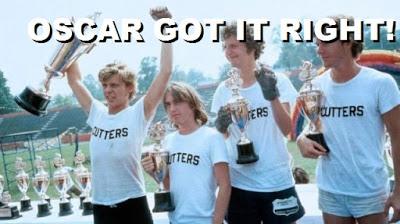F. Murray Abraham: Amadeus (winner)
Tom Hulce: Amadeus
Sam Waterston: The Killing Fields
Jeff Bridges: Starman
Albert Finney: Under the Volcano
What’s Missing
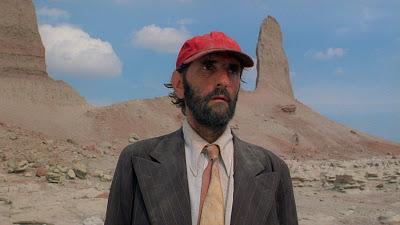
1984 is a great year for movies, and while there are plenty of great male performances, I don’t really object a huge amount to the five performances we’re given. Sure, I’d make a few changes here and there, but these are all quality performances and difficult to argue against. Films like Ghostbusters and This is Spinal Tap present the problem of deciding who is the main actor. Oh, I suppose it’s Bill Murray in Ghostbusters, but really, we could talk about multiple actors in both films being worthy of discussion. As always, there are tons of performances in films that would never be seriously considered. We can start with actors like Eddie Murphy in Beverly Hills Cop and continue through Dennis Quaid in Dreamscape, Peter Weller in The Adventures of Buckaroo Banzai Across the 8th Dimension, and (and this is admittedly personal) Kyle MacLachlan in Dune, a shitty film that I inexplicably love. Along the same lines, Utu is so unknown that Anzac Wallace almost certainly never crossed anyone’s radar. M. Emmet Walsh is near-perfect in Blood Simple, but he might be more supporting. So let’s talk about the four performances that I think really merit some real attention here. We can start with Robert De Niro in Once Upon a Time in America. Also on this list would be Howard Rollins in A Soldier’s story. I would strongly consider adding John Hurt for 1984. If you limit me to a single addition, it’s going to Harry Dean Stanton in Paris, Texas.
Weeding through the Nominees
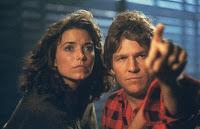
5. I like Jeff Bridges, and I kind of understand his nomination for Starman. It does feel like a sort of sop to the genre and perhaps a nod to John Carpenter who never really go the sort of respect he deserved. I like the film quite a bit and think there’s at least some reason to consider Bridges. Then again, Bridges’s performance is really him being mostly human, acting more or less like a hyper-intelligent corvid (look it up) was given human form. It’s nice. It’s noteworthy. He got his Oscar when he should have.
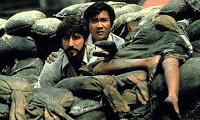
4. I like Sam Waterston, too, and I love that he got an Oscar nomination in his career. That said, and for as good as The Killing Fields is and for as good as he is in it, this film is all about Haing S. Ngor, who did win the Oscar for supporting actor. Waterston has the role of being the white guy in the film who sees the horror, lives through part of the horror, and is able to leave the horror behind. Ngor is the man who lives through it and comes out the other side. Sure, it’s a movie, but Ngor’s part of it is more compelling and much more real. This is his movie.
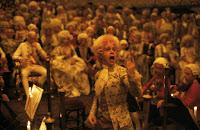
3. So how do I split up the two men rightfully nominated for Amadeus? I’m not sure, and I could honestly make a case for either of them. I’m putting Tom Hulce in third place not for any fault of his, but out of deference to the other two performances. Hulce was never better than he was here. That’s no shame to say, since it’s not only one of the best performances of 1984 but one of the most memorable of its decade. Hulce’s Mozart is how we all see Mozart now, whether we want to or not. He didn’t become the person; he made us decide that that’s how Mozart really was. He’d be a fair choice in pretty much any other year of this decade.

2. Of all of these movies, Under the Volcano is absolutely the one I’m the least likely to watch again and the one I like the least. But this isn’t about the movie; it’s about the central performance of Albert Finney, who delivers an absolute masterclass in what it means to be the focus of a film. Finney walks a tight line between being in perfect control of an out-of-control character and spinning off completely into chaos. He hold that for the entirety of the film, something that could not happen in the hands of a lesser talent. In any other year of this decade, he’d win from me without a second thought.
My Choice

1. But this is one of those years where Oscar actually handed the statue to the right person. While Amadeus would be nothing without the manic and brilliant performance of Tom Hulce, there would be no reason to spend time with it without the gripping and supreme work of F. Murray Abraham’s Salieri. Abraham’s role here is to create a character who has talent, drive, and desire and is smart enough to realize that nothing he does will ever be good enough to compare to someone he both admires and hates. He lives in his pain and presents it for us, and it is goddam glorious. He should have won, and he did.
Final Analysis
